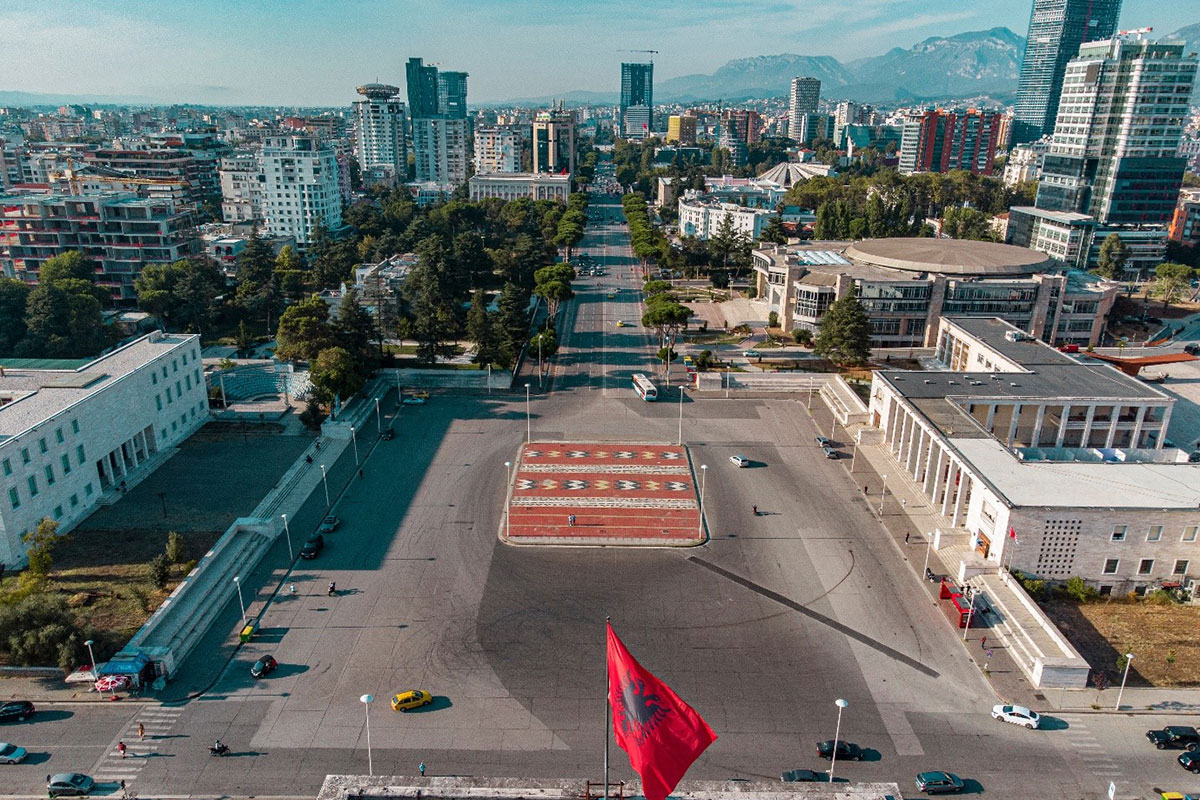No one is saying that we would have been completely immune to this global crisis, but some measures could have served as a buffer.
The International Monetary Fund recently released the forecast for the global economy and projections for each country. The most important message of this report? “The worst is yet to come, and for many people, 2023 will feel like a recession”. This sentence underlines the fact that the crisis is becoming harsher, especially for vulnerable groups.
For Albanians, what IMF said didn’t mean a change was to happen. The government took care to freeze the optimism about next year, and what seems more challenging is the winter ahead. The Minister of Infrastructure and Energy and Deputy Prime Minister Belinda Balluku, in a meeting with business chambers, stated that 2023 is expected to be worse than 2022 and that the government needs to be careful with expenses, making it clear to citizens not to expect much from their leaders.
Most of the developments you see these days are not good news. Inflation, energy crisis, spontaneous measures, and the populist statements of the government signal the gray days ahead for most of the Albanian families.
Higher prices force consumers to change their behavior
In September, inflation was 8.1 percent, the highest level in 24 years (since December 1998). The annual price increase in this month was mainly influenced by the "Food and non-alcoholic beverages" group with +4.91%, followed by the group of "Transport" with +0.99%.
This increase in prices going on for some time now and already has a negative impact. The behavior of the consumer has changed, and the food production industry and retail sector are the first to have felt these changes. Companies claim that the drop in consumption has reached up to 40% compared to years. They report that due to the high prices and inability to afford high expenses, families have switched to cheaper products in their everyday regimen. Albanian families have switched to bread and chicken meat, while the use of meat, sausage, oil, and dairy has decreased.
Especially dairy production factories have had more than twofold increases in their prices for this year, attributed mainly to the rising cost of energy, oil, and milk that they take from farmers. Milk production farms have seen a decrease year by year, making this a real threat for the industry and for the consumers who will have to switch to imported goods, even for dairy, something not unusual for Albanians since imports are very high in general.
The meat price increase is also part of the chain effect of the lower number of farms and the higher cost for dry matter used in farming.
The energy crisis will get worse
Albanian Power Corporation (KESH) has spent this year more than 300 million euros for energy imports due to low production and high prices in power exchange (Hungary Power Exchange that Albania has as reference). Companies supplied on 35 kv are buying energy on the unregulated market since 2018, while the ones supplied on 20, 10 and 6 kv, supposed to be on free market at the beginning of these year, are still dependent on regulated prices from public companies bur with higher tariff then before.
 Извор: pexels.com
Извор: pexels.com
Months ago, the government made some declarations about changing the way energy is billed, making it clear that there will be a cap with a cheaper price guaranteed and everything above this will be paid according to market prices (In some days the market prices have reached crazy levels like 130 lekw/kwh =1.2 euro/kwh). First this cap (or bandage) was discussed to be 700 kwh. Now it’s 800 kwh and was approved to enter in force from October. For some reason, after deciding that each kwh over 800 kwh will be paid with 42 Albanian ALL (36 cents/kwh) the government changed its mind.
The new billing won’t be applied for October but remains unchanged for November and December. The price for consumption under 800 kwh is 9.5 lek/w, nearly 4.4 times cheaper than the new price.
The expensive new bill of energy has also come with “guidelines” from the government that for many days were ridiculed on social media. This included advice on what temperature to wash the clothes, what house equipment consumes the most energy, turning off lights when you leave home. Last but not least, each public institution will have to appoint one person that will be responsible for monitoring the energy consumption, lights and efficiency. Institutions must consume less than 15% energy than before, or they’ll face fines.
The irony in all these measures in the middle of an energy crisis lies in the fact that Albania had the possibility to diversify energy production years prior, instead of giving energy saving lessons that everyone already applies it in their home (not always willingly). Until now, we just have strategies, plans and projects on paper.
No one is saying that we would have been completely immune to this global crisis, but some measures could have served as buffer.
More than 95 per cent of production is based on hydro, making it difficult to produce energy with no rain. Albania has approved since 2017 the law for renewable resources, but it hasn’t made much of a difference. Business have pointed out some problems that limit the real effect this law can have. Now, the government has decided to change the law in an attempt to make it more helpful for consumers who have the right to install a capacity of 500 kwp.
Collecting hundreds of millions and distributing far less
After a smooth summer when the government was turned into a group of bloggers promoting tourism, in September the second package of help for the crisis was presented. The total effect of the measures for this year as a stimulus for consumption was 6.1 billion ALL (52 million euros). Comparing the benefit the government has had in taxes linked with the price increase in general, the distribution to minimize the crisis effect is quite modest. Official data show that the total budget income for January-August 2022 was around 376 billion ALL or 100.4% of the 8-month plan. Compared to a year ago, the increase is 51.6 billion lek (430 million euros) or 15.9% more.
But who are the categories who will benefit from the second package? The government decided to index salaries and pensions. This indexation is at 6 percent. Also, there was a 7 per cent increase for the salaries in the public sector for categories such as police and prison staff. Also, the minimal wage was increased again, reaching now 34,000 ALL (293 euro). Farmers will be supported with a fund dedicated to oil used by the agriculture sector and some measures to increase wheat production.
Beyond the measures taken, some of which will continue to have effects after this year, economists think that the second package of help is not enough. Certain vulnerable categories such as pensioners may face a harsh winter since the living cost has been quite unaffordable.
A winter of guessing… for worse
The warning is clear. We have in front of us a very difficult winter and next year will be more challenging than 2022. The problem lies in the fact that no one can say for sure today how much worse it can go and the real impact on citizens. So, we can only guess how bad it will be at the moment.
However, one thing is certain, as the cycle of the crisis gets harder, the government's ability to buffer it is limited. The decisions could be very tough and quite painful in order to keep things on track. The destructive consequences that started with the pandemic, followed by the crisis of raw materials, energy, and the Russia-Ukraine war has made it very clear for every country that conformism is not a luxury we have anymore. Therefore, we need responsible governments that make difficult decisions in good days, but they also think about the bad ones.
In this way, when they face situations like the one we’re living today, they can offer a dignified care for their citizens and not last minute improvising tricks that leave citizens struggling to face the next day, week, month, and the winter ahead…
Please refer to the Terms before commenting and republishing the content. Note: The views and opinions expressed in this article are those of the author and do not necessarily reflect the views of the Institute of Communication Studies or the donor.


